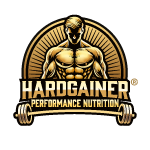SRA (Stimulus · Recovery · Adaptation)
SRA is the loop of stimulus, recovery, and adaptation. For hardgainers (hard gainer), SRA is the anti-chaos compass: you plan frequency and volume so progress is possible instead of stacking fatigue week after week. Pair SRA with RIR and RPE, keep NEAT in check, and hit your needs via TDEE.
This page is for context and practical orientation. It is not medical advice or rehab guidance. If you have pain, injuries, or medical conditions, get professional clearance.
SRA: definition in 20 seconds
A meaningful training stimulus creates fatigue and starts adaptation. With enough recovery, performance returns to baseline and often above it. Practical translation: the next hard stimulus comes only when technique, performance, and “drive” are back in range.
- Stimulus: effective reps close to failure, managed via RIR/RPE.
- Recovery: sleep, calories, stress, daily load. High NEAT often breaks the plan.
- Adaptation: proven in your logbook: more reps/load at similar RIR, stable technique.
Context: SFR, MEV, Progressive overload.
Typical SRA windows: timing over vibes
| Muscle / lift type | Typical range | Hardgainer guardrail |
|---|---|---|
| Pressing (chest/shoulders) | 48–72 h | 2× weekly often works great if volume stays sane. |
| Pulling (back) | 48–72 h | Prioritize technique quality, not “more sets” by feel. |
| Squat/press (quad-dominant) | 72–96 h | Higher systemic load. Increase frequency only if recovery truly fits. |
| Hinge (hamstrings/glutes, heavy) | 72–120 h | If you feel “drained”: reduce volume or pick a lighter hinge variation. |
| Arms / isolation | 48–72 h | More frequent can work if elbows/tendons stay calm. |
These are guardrails, not laws. Your real control panel is logbook data plus biofeedback. DOMS alone is not a progress metric.
Straight talk: 7 rules that turn SRA into progress
- Rule 1: Control effort with RIR (e.g., 1–2) instead of ego.
- Rule 2: Frequency follows recovery: if performance drops, “more” is rarely the fix.
- Rule 3: Hit your needs via TDEE and keep NEAT in range.
- Rule 4: Stabilize volume at MEV first, then climb slowly.
- Rule 5: Measure adaptation in the logbook: load/reps up at similar RIR, technique stays clean.
- Rule 6: DOMS is information, not a KPI: focus on performance and fatigue management.
- Rule 7: If recovery keeps lagging: improve exercise selection and SFR instead of “pushing through.”
System links: Training volume & fatigue system, Technical failure vs muscular failure.
Monitoring checklist: how you know you’re “ready”
- Performance: you hit target reps/load again, or you’re above it.
- Technique: ROM is stable, no compensation patterns.
- Drive: warm-ups don’t feel like work sets.
- Fatigue: sleep, appetite, mood are in range.
- Joints/tendons: no warning lights in elbows, shoulders, knees.
If 2–3 points are clearly off, treat it as a signal: reduce frequency, reduce volume, or make exercise selection smarter.
“More training = more muscle.”
Muscle gain isn’t “sets × ego.” It’s stimulus × recovery. Ignore SRA and you often just collect fatigue. It looks like “a lot of work,” but your logbook stays flat.
Related deep dive: Hardgainer Myth-Busting – Myth 2
Evidence and studies
SRA is a practical framework: frequency is often a tool to distribute volume and quality across the week. What matters is keeping recovery and progression aligned.
- Schoenfeld BJ et al. (2016): Training frequency and hypertrophy (systematic review/meta-analysis).
- Schoenfeld BJ et al. (2019): Frequency and hypertrophy when volume is equated (meta-analysis).
- Schoenfeld BJ et al. (2017): Dose-response weekly sets and hypertrophy (meta-analysis).
- Radaelli R et al. (2015): Dose-response of 1, 3 and 5 sets (longitudinal study).
Practical takeaway: SRA is the frame. Your logbook is the proof.
This wasn’t just reading. This was commitment.
If you want progress, you need a system. Get the Hardgainer Mission Briefing™ and execute one thing cleanly every week.
After sign-up you’ll receive the download link for Hardgainer Hacks™ (PDF) and the Hardgainer Mission Briefing™ via email. Privacy policy.

